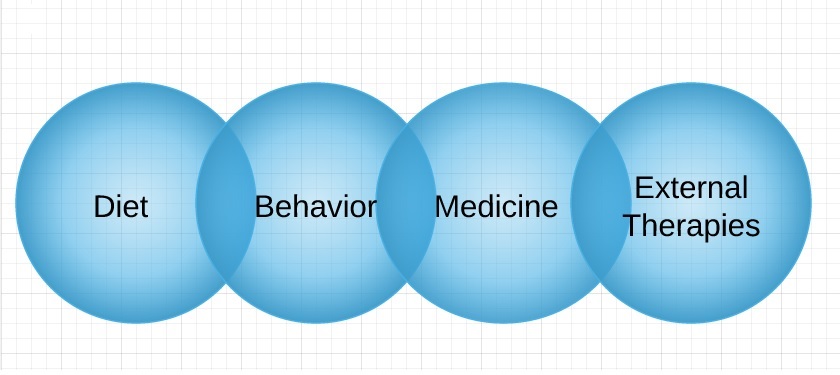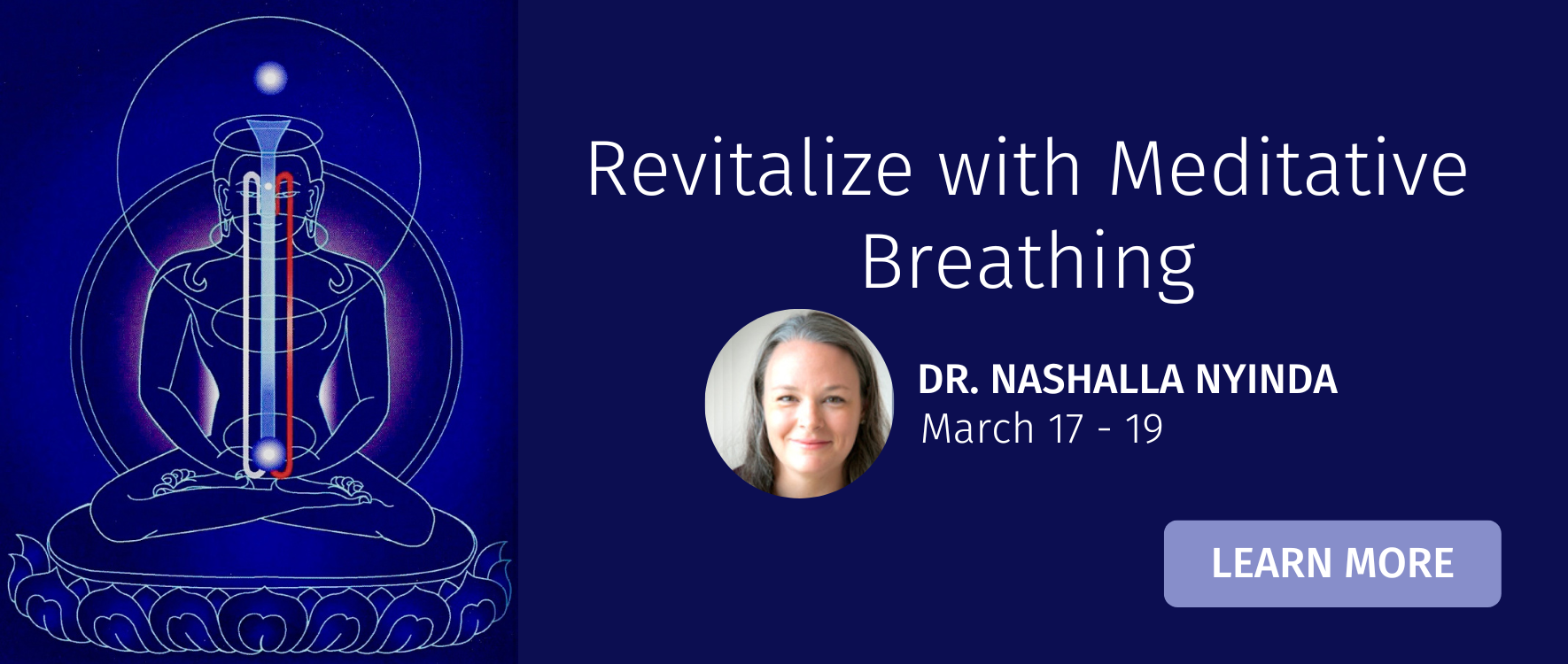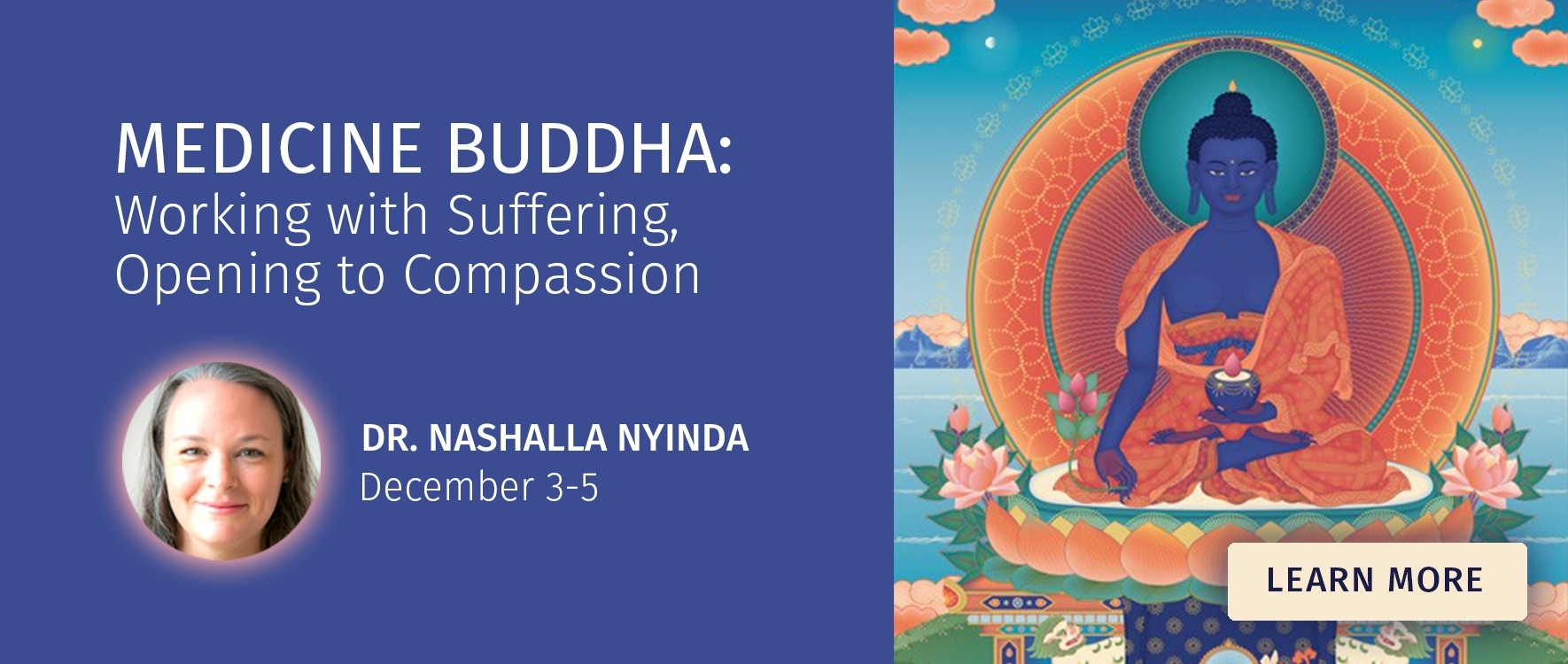Principles of Traditional Tibetan Medicine to Harmonize Ourselves
Tibetan medicine is an ancient and time tested comprehensive approach to holistic healthcare for the body, mind and emotional well-being. Focused almost exclusively on creating and maintaining equilibrium within one’s body and mind; the system aims to help one to know oneself, and thus how that relates to the external environment.
There are 4 treatment methods according to Tibetan Medicine
I always encourage people that the first two treatment methods of diet and behavior are the first line of defense and the most important in recovering balance or management of a condition. This is because this is done by the patient on a daily basis and is not necessarily dependent on the physician. AND IT’S EASY to both learn and apply!
In the upcoming Introduction to the Principles of Traditional Tibetan Medicine weekend intensive at Shambhala Mountain Center, we will be focusing on these first two aspects of treatment and self-care.
What we will learn
During this weekend retreat, we will learn how to return harmony to our body and mind by refining our relationship to the elements and seasons. You will be given tools for identifying the three humors, for encouraging equilibrium, as well as learn how to apply general antidotes when the humors are imbalanced. The ultimate goal is to foster balance in the body and mind while encouraging a direct relationship to self.
Tibetan medicine understands that everyone is an individual, and therefore looked at as a unique makeup of the 5 elements and how that combines to form the “3 humors”. I believe as a physician of Tibetan Medicine that the modern world can benefit from the ancient healing arts of Tibet by making people aware of themselves. Who are they as an individual, how that relates to their symptoms and health issues and then make the connection to the natural cycles and seasons, qualities of food. This is an aspect I not only feel passionate about – but feel it will help give people very simple basic tools to enhance their well-being.
Nature is the blueprint
Because the external and internal elements are interrelated and in fact based on the same material Tibetan Medicine takes the viewpoint that the sciences of anatomy, physiology, pathology and pharmacology are all based on the 5 elements.
The combination of the elements make up our 3 humors, literally translating as “faults” in Tibetan because they are not stable, they change. This follows the law of impermanence. This development of the 3 humors is based on the principle of the 3 root poisons.
Passion – Aggression – Ignorance.
The Root Tantra tells us that the 3 humors reflect an individual balance for each person, wholly unique to them and their experience of health or imbalance in body, mind and spirit. There are 7 possible combinations or patterns of how these 3 humors can dominate within each person. Yet from the physician’s role, each person is treated as an individual with individual instructions. A doctor’s skill is in informing the patient what their dominant elemental pattern is, and how to balance this through diet and lifestyle.
The 3 Humors Root Poison
• rLung (pronounced Loong) WIND passion / attachment / desire
• mKhris-pa (pronounced Tri-pa) BILE / FIRE aggression / anger
• dBedkan (pronounced Pay-can) PHLEGM ignorance
7 possible constitutional possibilities for how the humors can display themselves
Single wind
Single bile
Single phlegm
Duel wind + bile
Duel wind + phlegm
Duel bile + phlegm
All 3 humors combined- wind + bile + phlegm
WHY and HOW will this Tibetan approach increase one’s health, mental and emotional well-being?
The seasons, cycles, stages of life one is in all play a role in how the 3 humors operate. By bringing awareness and a solid simple, yet profound understanding of these aspects, many symptoms can be decreased or eliminated. We will have easily referenced tools and handouts which are the guides. I am passionate about empowering people to be an active participant in their healing process. You will walk away with confidence that you can use the aspects of diet, behavior and harmonizing with the seasons to empower your healthcare. Even if you’re just looking to optimize your natural healthy state; this course is a powerful lens to enhance all aspects the body, mind and spiritual practices.
What are the applications towards my spiritual practice?
Specifically if one is a serious Buddhist practitioner; there are aspects of recognizing and working with the 3 humor’s energies directly in mediation practice can enhance and deepen practice. We will touch on those. If you’re new to meditation; the aspects we will cover are still applicable to basic relaxation or yogic practices that are non-denominational. There will be time for individualizing and catering to what you’re hoping to get out of this course.
People used to ask me when I lived in Asia studying, ‘Why if you come from a culture so rich with modern medical advances do you study such a old system?’ My response was always that if a medical system which is the same today as it’s been for hundreds of years, is still in practice, and continues to produce good results with little or no side effects, it seems to me it has more value in studying it than modern medicine.
What is the importance or relevance of Tibetan medicine in today’s modern heath care system? The answer is simple. Despite advances in modern medicine people are still unhealthy, unhappy or both. Chronic diseases such as diabetes, auto-immune disorders, simple and complex digestive disturbances and a now massive wave of ‘food sensitivities’ and allergies or inflammatory conditions are on the rise. Emotional and psychological disorders are widespread and the number of people on antidepressant medicines is staggering. Patients take one drug to balance out the side effects of another.
This is not to say that there cannot be a marriage of the two worlds. One of the things that I strive to do as a western person explaining a system which is sometimes very different from what we know in a cultural context, is how to apply the principles of Tibetan medicine to daily life. These then can be further applied into whatever medical treatments one is currently undergoing. Many people seek conjunctive and alternative treatments to enhance their allopathic treatments, and this is also very helpful.
Come Join me and learn tools to enhance your well-being! Whether Buddhist or non-Buddhist, healthcare practitioner or not, all will benefit and gain new tools for heath. Please join me as we explore the time-tested wisdom of Traditional Tibetan Medicine.
Join Dr. Nashalla Nyinda in 2023!
~~~
Also on the SMC Blog
~~~











